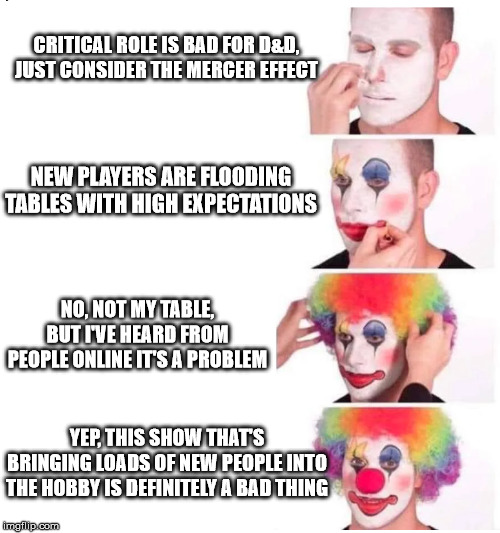Recently one of the players in my weekly gaming group has turned inactive. In need of a warm body to fill the open spot, I invited a friend of a friend to join. Since I didn’t know the new player, I put together some questions to ask a new player. The idea was to get a read on new players before sitting down at the table together. Which is good, because I ended up having to use it for a whole new group of strangers I’m going to DM as a second game.

The questions give me a jumpstart on sussing out the type of player they are. That information is very useful when trying to discover the type of gameplay they want.
Below there are the 15 questions I put together for new D&D players. As I list them, I’ll say a little about why I included each question, the sort of responses I received. I’ll also address the importance of reading between the lines. It’s important to also pay attention to what players DON’T say in their responses.
1. Tell me about your history with tabletop RPGs
This is a cupcake opener. First off, you’ll notice many of the questions are open-ended. That draws more information from the respondent than a simple yes or no. What I’m looking for in this question is how familiar the player is with the hobby in general. Is this a player I’ll need to help identify the twenty-sided die to make a roll, or do they have a vast wealth of experience to draw on as an RPG player?

Most players answer with how long they’ve been playing, how they got into the RPG scene, and the RPG rules systems they have experience playing. Some will even make sure to tell you they also have experience running games.
I also look for gaps in experience. Are they just now starting the hobby, did they play in college but then put it down to pursue life? I’m seeking clues to their passion and consistency. Do they play in two weekly games with different groups? That player LOVES RPGs and is probably a blast at the table.
Or can they never seem to hold onto a consistent game, or haven’t played in a decade? That could signal a problem player, a flighty personality, or someone who is has very different expectations of how the game should be played.
2. What is your experience/opinion of D&D 4e?
Dungeons & Dragons 4th Edition is one of the most divisive subjects in the RPG hobby and it often evokes strong opinions. Did they play it and enjoy it, hate it? Do they hate it, but never played it?
Those strong opinions tell me about the type of player they are and their personality. If they loved 4e, it’s likely they enjoy optimization and tactical combat. If they never played 4e, but are vocal about their dislike of it I know they have strong opinions about what IS and IS NOT D&D. Instead they are likely to adore the many iterations of third edition/Pathfinder.
I know as my personal opinion, if the person is in the 4e hate/”3.X for life” camp I may not mesh well with them.
3. How much do you like to play games versus run games (Ex. 80/20)? Why?
This is a great thing to learn about the people you play with early. Learn about their desire to run games. I’ve never run into a group where there were too many game masters. You will also learn some people like to run games more than play in them, though it’s a rare occurrence. The answer gives me a good idea of how often I can lean on one of the players to step in and run something so I can avoid GM burn out.
By asking people why they do or do not run games provides me a better idea of what they’re looking for in their table time. Do they like creating new places and exploring them? I’ll make sure to avoid using the Forgotten Realms or Golarion as the campaign setting. I can also tap that player to create locations in the world if I need more bandwidth.
4. What 3 player types best represent you
http://dustin.wikidot.com/player-types
In my experience this question gets me better quality answers than asking a person what they want in a game. Instead, they can pick from the list and that will tell me about the pillar mix of scenes I need to work into a game. That way I don’t prepare a court intrigue plot for a group of bored slayers.
Unfortunately, you do have to take people’s answers with a grain of salt. People are quite bad at self ascribing. When I recently asked this question to a new player he correctly self-identified as a slayer. But, during session zero it became clear he was also a full-on power gamer and slayer, not the storyteller or actor as he responded.
5. Do you have a favorite race or class to play?
This question is another easy one for the players. As a GM this question serves to see if the person is a player who only plays one or two characters over and over again. You know the type of player. But, you do want to watch out for respondents who love to play the same class. It can be a source of tension in the group. To me it always seems these players go for rogues and sorcerers.
6. How familiar are you with non-D&D RPGs?
What is your favorite non-D&D RPG?
How much time do you want to play D&D versus other RPGs?

This is a great question to gather more detail about the respondent’s RPG background. It also let’s me know how much the person understands RPG mechanics. Additionally, many RPGs are good at creating a specific type of game. If the person loves playing a specific game it provides insight on the kind of adventures they’re interested in playing.
The answer also provides your gaming group more options of games to play. While you may be ready to run a D&D or Pathfinder game it’s nice to know the group is on board with playing other RPG systems. Variety being the spice of life and all.
7. How do you feel about homebrew player options (races, classes, spells, etc.)?
I like to know upfront how people feel about homebrew content. I’m looking for how interested they are in playing Unearthed Arcana or full homebrew content. I’m generally not going to allow untested homebrew content in a campaign. However, I’m open to testing homebrew content in short adventures or one-shot.
The player’s feeling also informs me about how much DM homebrew content I should include in the game. Some players expect every orc to follow the published stat block. Others want to see homebrew mechanics, items, and monsters they’ve never experienced before.
8. What do you absolutely not want in your games? (Trigger Warnings)
It’s a courtesy as a GM and a nice thing to do when you get ready to game with a person for the first time. I find players with bad experiences appreciate the question. It helps to prevent table problems before they happen.
Play in the hobby long enough and you’re likely to experience someone’s trigger. It can derail a session, even a whole game, fast.
9. Do you prefer plot-driven campaigns or character-driven campaigns?
How much of a campaign do I need to drive as the GM versus the player characters. West Marches games and the backstory adventures of Critical Role show a strong character-driven focus. Critical Role has a nice 1-1-1 balance between character adventures, primary plot adventures, and one-off side quests.
To be honest, most potential players are bad at answering this question. But, I don’t think it’s their fault. The plot versus character story is a literary analysis concept. Some players are adamant about plot-driven campaigns but provide extensive backstories to mine for adventures.
While this question still holds a spot in my list for now I may remove it in the future. I want to gather more responses before making that decision.
10. What are your feelings on intra-party conflict?
This is a great question that tells me a lot about a person’s play style up front. Are they a PvP kind of person or a PvE person. The question begins to inform me how they feel about hijinks. It can also help me sniff out an Instigator player early. This is the person whose thief steals from the party or isn’t afraid to challenge party member decisions and actions.
I take this into account when looking at the whole group. If I have one player who really enjoys intra-party conflict, but everyone else wants the source of tension and drama to be from external sources… I know the group isn’t going to gel well. But, if I have two or more players interested I’m willing to entertain it. Though I do have to keep in mind that the internal drama is liable to bring an adventure’s progress to a screaming halt.
11. What is your preferred campaign style?
- One Shots (Stand alone movie)
- Unaffiliated Adventures (Character Anthology: James Bond)
- Short, Focused Campaign (TV Limited Series)
- Save the World Epic (Lord of the Rings)
Including this question helps me determine a new player’s expectation for a campaign. While we drool at the idea of running a full, 1-20 campaign in a 100% homebrewed world it rarely happens. In truth, I’ve only played one, 1-20 campaign. The campaign only worked as a result of accelerated XP and encounters with challenge ratings far beyond our level. Even then it took many months to complete.
Unfortunately, most campaigns don’t have an ending, the game just falls apart. I also learn from this question the style of game that interests the player. If they like building characters and trying different RPG rules systems they often love one-shots and unaffiliated adventures. Players who want to explore a deep story and its characters often want longer, more involved campaigns.
12. Have you watched Critical Role?
If so, what are your thoughts?
Other actual play video series/podcasts?

With the current state of RPGs this is a must-have question. Today, D&D and other RPGs are finding new player growth from sources like online streaming. Now online influencers are bandwagoning D&D to see if it attracts more reach and engagement.
Of course this also includes the Matt Mercer effect. Critical Role’s effect on the hobby is positive. However, if someone’s only exposure to D&D is Critical Role they’re in for a shock when they hit the table for the first time. In the same way someone might watch a Hollywood movie and then try to shoot their own movie.
Part is understanding my personal preference and the players to find a balance at the table. As a DM (and certainly as a player) I don’t want to spend hours role playing menial shopping or throwaway “beach/onsen” episodes. More importantly, I don’t want to kill a session because half the table becomes bored and disengaged.
13. Tell me about your favorite and least favorite character/campaign moments
Another cupcake question as we move towards the end of the new player questions. All I want to glean from this question is what type of moments are in the answer. Is their favorite moment a cool combat move, a clever solution, or a paradigm shifting social encounter? It can give me insight into which pillars of play they really like or dislike.
For example, if a player tells me about how much they hate the indecisiveness and over-wariness of adventurers afraid of traps I know to use tricks, traps, and other surprises sparingly to avoid trap paranoia.
14. What’s your favorite and least favorite thing about tabletop RPGs?
This is a play style discovery question through and through. I want to know what aspect of the hobby they like and what they really dislike. In my experience the answers are quite varied. Some people really enjoy the collaborative, hanging out with friends aspect. Others enjoy the tactical aspect. This may be the single best question to determine a player’s primary player type.
Likewise, the player’s least favorite aspect will speak to what player type they are least like. This is also a second opportunity for the player to bring up any trigger of gameplay they don’t want to see.
15. Is there anything else you’d like to share or think I should know?
I include this question as a safety net to catch anything that hasn’t come up as a part of the questions already. This when a player will tell me if they have any conditions, difficulties, or other foibles that may impact the gaming table.
Best to learn about a player’s personality quirks beforehand and not if they come up in force during a session.
Wrap Up
Do you get information on prospective players before they reach your table? I like to use the questions before meeting a prospective player. Then we will discuss and meet over a video call or in-person at a neutral location before inviting them to my home. That may seem excessive, but I don’t like giving out personal information like my phone number or home address to strangers.
That’s all for now, have other questions you ask new players? Shoot them to me on Twitter. You can also see some of the stuff I’ve created over on Drive-Thru RPG. It’s all Pay-What-You-Want so grab it and if you can throw me a few dollars to keep the site running and ad-free.
Worldbuilding Process Blog Update
No cause for alarm, I am working on the Biomes post, but I realized it was going to take more time to complete. I will continue working on it and you’re assured it will go live on the site at some point. You can find all the Worldbuilding Process Posts HERE.
